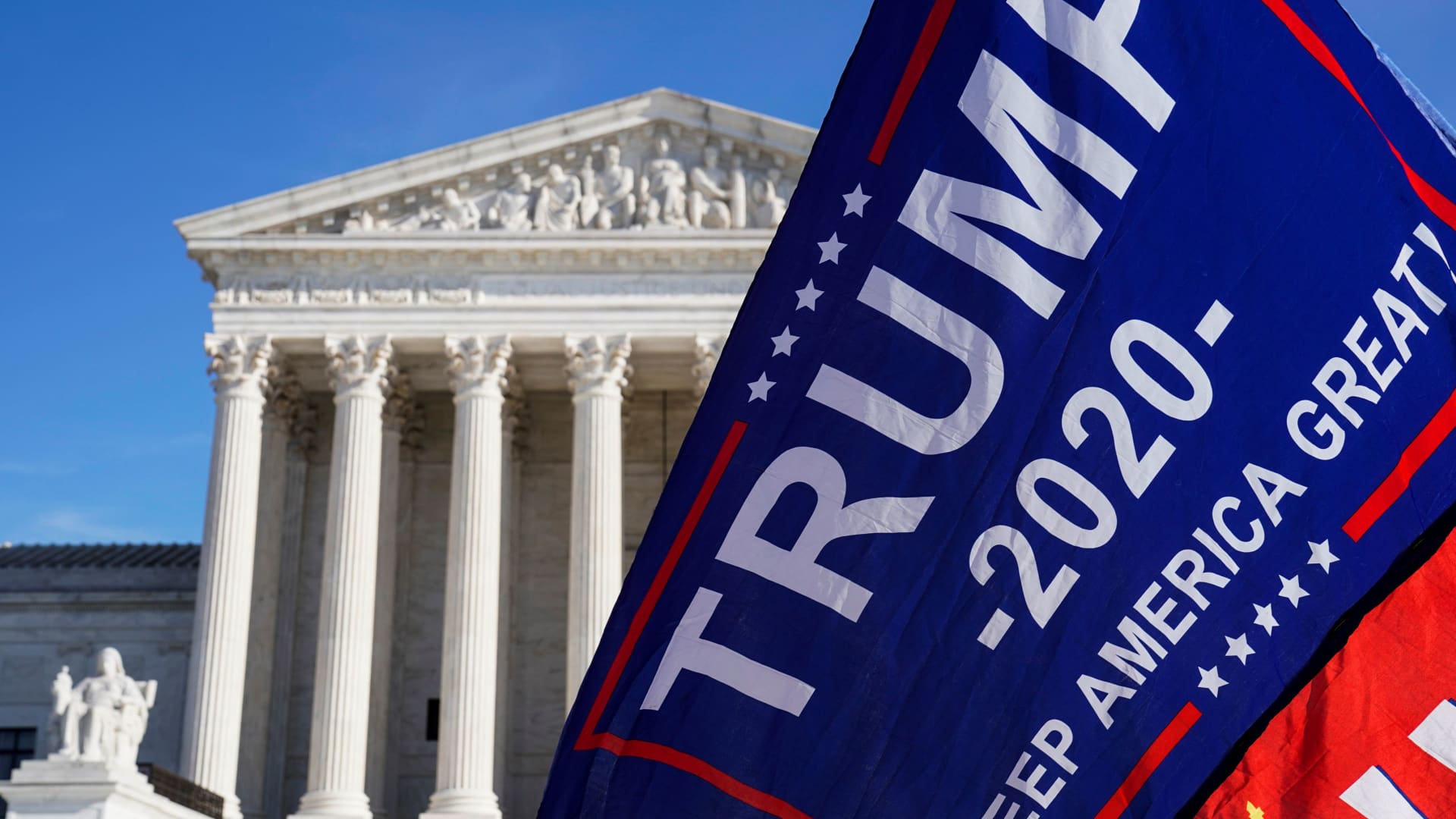U.S. President Donald Trump delivers an update on the so-called Operation Warp Speed program, the joint Defense Department and HHS initiative that has struck deals with several drugmakers in an effort to help speed up the search for effective treatments for the ongoing coronavirus disease (COVID-19) pandemic, in an address from the Rose Garden at the White House in Washington, U.S., November 13, 2020.
Carlos Barria | Reuters
The Supreme Court on Thursday is set to consider whether former President Donald Trump is immune from federal prosecution on criminal election interference charges.
The question before the court — whether an ex-president can be prosecuted for official acts performed while in office — is an existential one for special counsel Jack Smith’s case charging Trump with illegally trying to overturn his 2020 election loss to President Joe Biden.
The high court’s eventual ruling also carries profound consequences for some of Trump’s other pending criminal cases that hinge on his conduct in the White House.
Along with Smith’s case in Washington, D.C., Trump is charged in Georgia with attempting to reverse his loss to Biden in that state’s 2020 contest.
He is also currently on trial in Manhattan Supreme Court for allegedly falsifying business records when, after becoming president in 2017, he reimbursed his then-lawyer for a $130,000 hush money payment to a porn star.
Trump will not be at the Supreme Court to hear the oral arguments because he is required to attend his New York criminal trial.
Attorneys for Trump and Smith are set to begin arguing at 10 a.m. ET before the nine justices, three of whom were nominated by Trump during his one term as president.
The Supreme Court agreed to take up the case after two lower courts rejected Trump’s claim that he is immune from the indictment being prosecuted by Smith.
Supporters of U.S. President Donald Trump wave a flag at the Supreme Court as the court reviews a lawsuit filed by Texas seeking to undo President-elect Joe Biden’s election victory in Washington, U.S., December 11, 2020.
Joshua Roberts | Reuters
By weighing in on the immunity question, the high court effectively delayed by months the election interference case, which is on hold in the U.S. District Court in Washington, D.C. The Supreme Court could rule on the issue quickly, but it tends to save its biggest rulings for the end of the term, which typically wraps up in late June or early July.
Even if the justices reject Trump’s argument and allow Smith’s case to resume, it might not go to trial until after the Nov. 5 presidential election. Trump, the presumptive Republican presidential nominee, has tried to delay all four of his pending criminal trials past that election.
The federal election interference trial was originally set to begin on March 4.
Some legal experts who are critical of Trump slammed the court for keeping Trump’s immunity claim alive after a federal appeals court in D.C. forcefully rejected it in early February.
The Supreme Court “has already unduly delayed this matter,” said Norm Eisen, a lawyer and former aide to House Democrats during Trump’s first impeachment, in a press call Wednesday.
The indictment brought by Smith charges Trump with four criminal counts, including conspiracy to defraud the United States. Smith alleges that Trump tried to subvert the 2020 results by spreading false election fraud claims, organizing slates of fake pro-Trump electors in states Biden won, and trying to exploit a violent mob of Trump’s supporters that stormed the Capitol on Jan. 6, 2021.
This is developing news. Please check back for updates.

